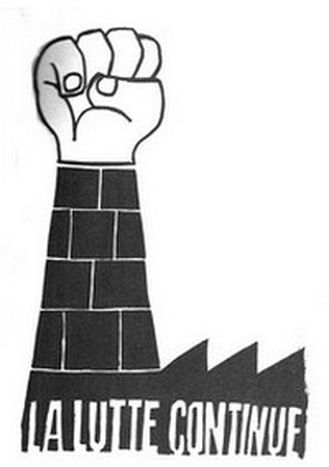
Situationism: ideas in conflict
Published on
Translation by:
 christopher hall
christopher hall
Rue de Seine, Paris 1952. ‘Never work’ is chalked on a wall. Two words about the philosophy of the 'Situationists' who transformed May 1968 and who still inspire activists today
Under the Parisian cobblestones, the beach. And a handful of men who hope for ‘society’s and life’s liberating change where we are confined.’ In May 1968, the Situationists invited the students and demonstrators to create spontaneous atmospheres in everyday life, some ‘situations’ which ‘made life fascinating,’ according to the founder of the movement, Guy Debord.
More pleasure through less work? In this world where production, money and power are of prime importance, you need to set in motion a ‘real emancipation of the pleasures.’ Not haggled over pleasures, but an ‘enjoyment without barriers.’ In short: freedom from the morals of the era.
Revolution within everyone’s reach
With the Belgian essayist Raoul Vaneigem, the Italian Giuseppe Pinot-Gallizio and the Dane Ahsger Jorn, Guy Debord created the Situationist International movement in 1957. It survived until its self-dissolution in 1972. This regrouping of personalities from all sides, a real powerhouse of unbelievable intellectual activity, created an eponymous journal.
According to them, the creative explosion must be quite powerful in order to topple the alienating structures of society. The conclusive weapon of the Situationists: gratuity. For them, the offering must replace the exchange market and social liberation must be complete. Class society and the means which organise a ‘reign of merchandise’ must be abolished. Never had we maybe thought about such a complete revolution and at the same time so accessible.
This revolution, firstly independent, refused the sacrifice of the individual. ‘The revolution stops from the moment we need to sacrifice ourselves for the good of the revolution,’ explains Raoul Vaneigem in 1967. In the absence of finding political solutions, we need at the very least to draw courage from believing in a utopia which is well within our grasp and to put an end to history’s bad luck.
Policy intends to change
 In their journal, with the help of slogans scrawled on the city’s walls, the Situationists point the finger at the misery of the student environment and infiltrate some sections of the National Union of Students of France (UNEF). They breathe life into the crisis of May. A major turning point that young generations of the 21st century have forgotten about, but to which the new activists owe a lot.
In their journal, with the help of slogans scrawled on the city’s walls, the Situationists point the finger at the misery of the student environment and infiltrate some sections of the National Union of Students of France (UNEF). They breathe life into the crisis of May. A major turning point that young generations of the 21st century have forgotten about, but to which the new activists owe a lot.
For this philosophy has inspired numerous anti-establishment movements today, in the sector of ecology or the rejection of showbiz, like the Antipub movement. However, the Situationists’ strength is for having been visionary. Twenty years after the release of its flagship book Showbiz society, ‘This is the first time in modern Europe,’ writes Guy Debord in his book A report on constructing situations (1958), ‘that any party or fragment of party is no longer trying to maintain that it would risk changing something important.'
Read:
About Guy Debord
'A report on constructing situations' (1958)
'Comments on showbiz society' (1988)
In-text photo: (MarekZ/ Flickr)
Translated from Situationnisme : les idées en bataille


